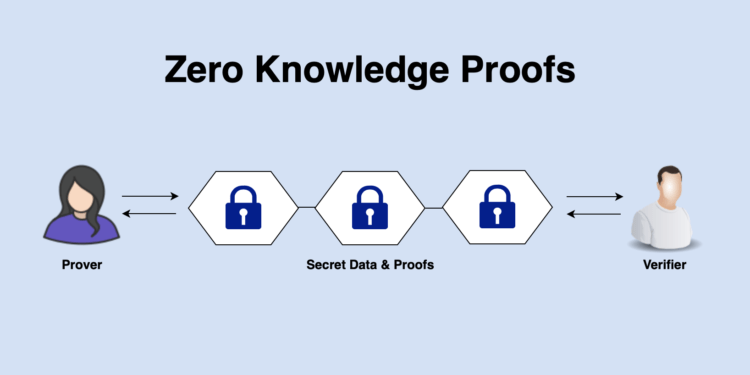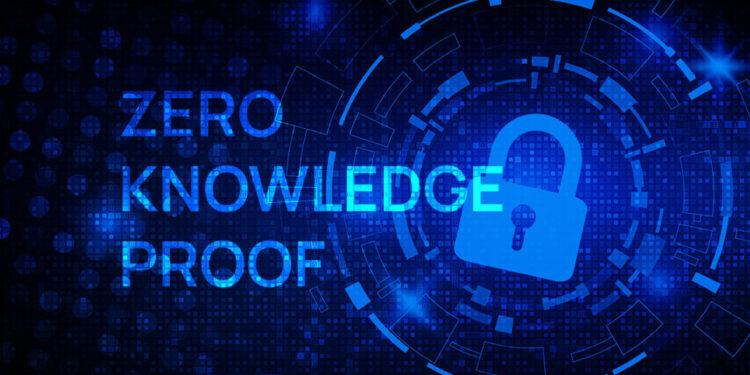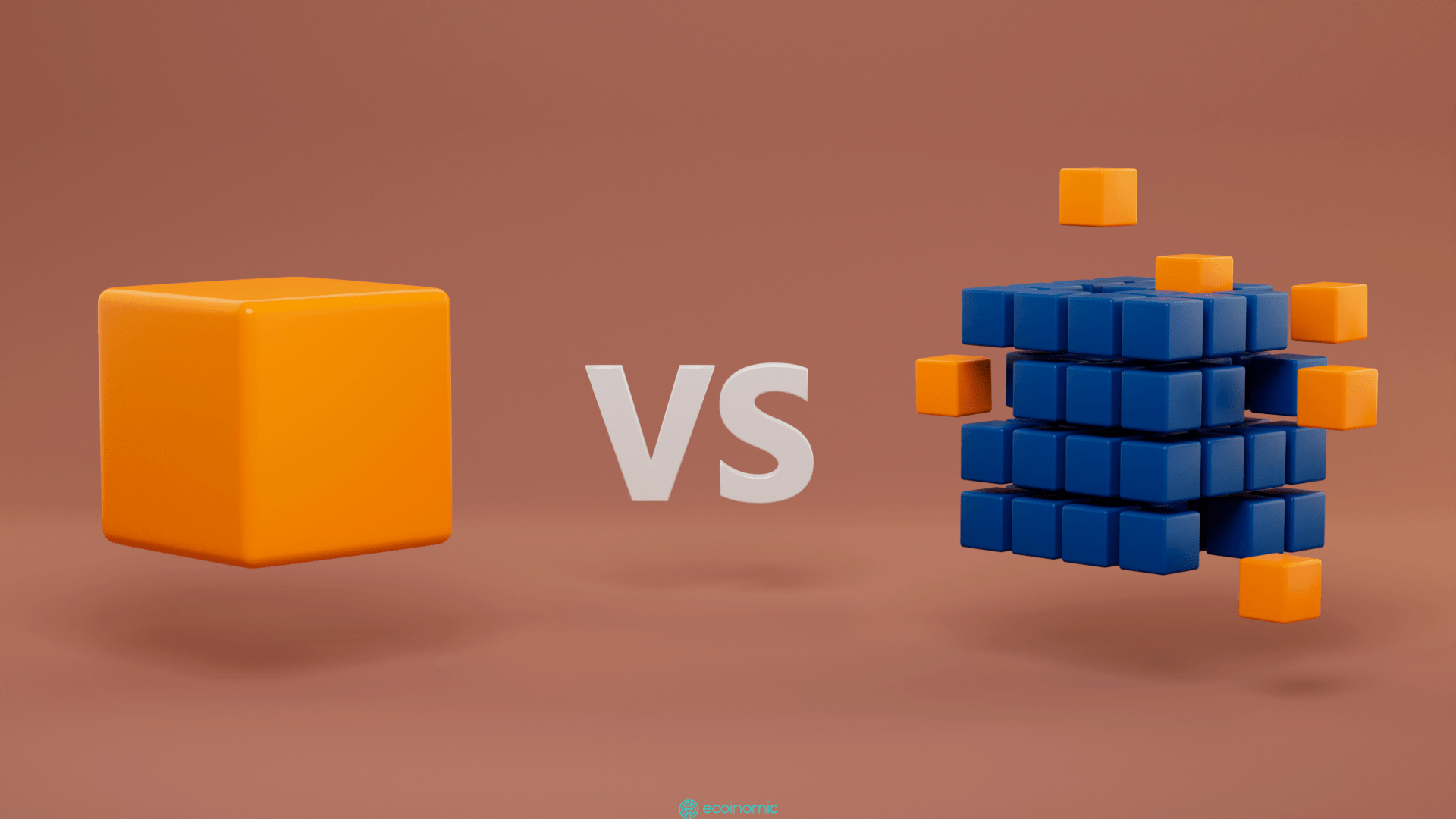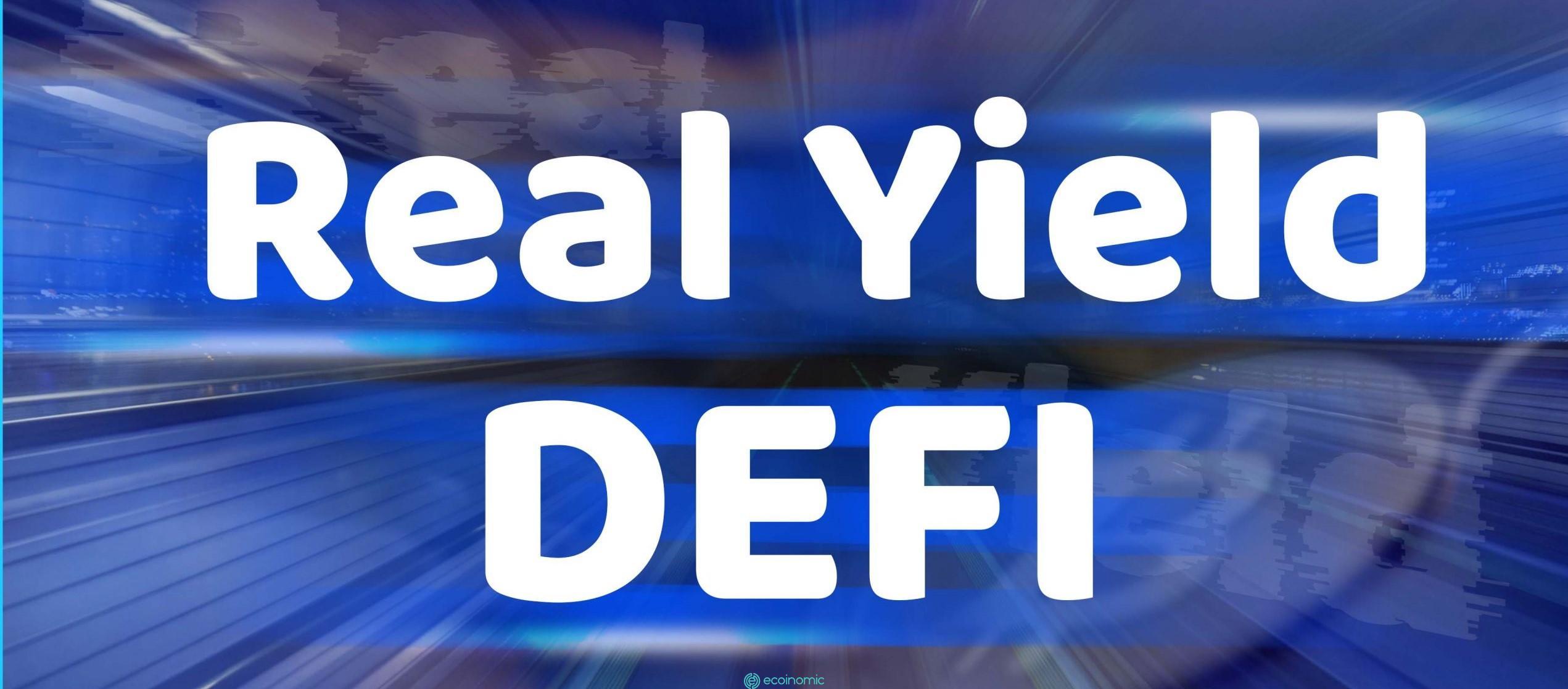Advertisement
Zero-knowledge proof is a cryptographic technology that validates the completeness and accuracy of information without revealing any relevant data
What is Zero-Knowledge Proof (ZKP)?
Zero-knowledge proof is a cryptographic technology that validates the completeness and accuracy of information without revealing any relevant data. This method was first introduced on a paper by MIT researchers in 1985. ZPK consists of two basic roles:
- The prover
- The verifier

Simply put, this is a method by which one party (the prover) proves to the other party (the verifier) that something is true but does not reveal any other additional information. Zero-knowledge proof is considered a breakthrough in applied cryptography, improving information security for individuals.
Zero-knowledge proof classification
There are two types of zero-knowledge proof:
- Interactive zero-knowledge proofs: The prover and the verifier communicate with each other several times, the verifier asks the prover to perform challenges until they feel convinced.
- Non-interactive zero-knowledge proofs: The information given by the prover is verified only once at any time, which requires more algorithmic power than mere exchange interaction.
>>> Related: How to sign up for Binance update 2022
Features of Zero-knowledge proof
- Completeness: If the information provided is correct, the verifier will be convinced by the prover that it is true.
- Plausibility: If the information provided is wrong, then the ZKP method allows the verifier to disprove that the prover is telling the truth.
- Zero-knowledge: The method only reveals to the verifier whether the prover is telling the truth or not.
How zero-knowledge proof works?
Zero-knowledge proof allows you to prove the authenticity of a piece of information without sharing content or revealing how you discovered the truth. To accomplish this, zero-knowledge protocols rely on algorithms that take some data as input and return ‘true’ or ‘false’ as output. For example, by using the ZKP method, the recipient of funds can verify that the depositor has sufficient balance in the bank account without obtaining any other information about the sender’s payment balance.
Application of zero-knowledge proof
Zero-knowledge proof is used to protect data privacy and security of personal information. Cryptographic algorithms have applied ZKP in real life to verify a computational statement.
- Blockchain:
The transparency of blockchains like Bitcoin and Ethereum allows for public verification of transactions. However, that means that the privacy and security of user identities are not guaranteed.
ZKP is an innovative feature of cryptography that provides users with greater privacy when trading cryptocurrencies. A good example is Zcash, a cryptocurrency that has applied zero-knowledge proof to build zk-SNARKs technology, allowing users to secure transactions and anonymize cryptocurrency wallet addresses.
- Finance:
ING the ZKP application allows the client to prove that the secret balance of the account is within a certain range. For example, a person who wants a mortgage on property can prove their income is within an acceptable range without disclosing their exact salary.
- Online voting:
ZKP can allow voters to vote anonymously and verify that their ballot has been included in the final count.
- Authentication:
ZKP is used to authenticate users without exchanging confidential information such as passwords.
- Machine learning (ML):
ZKP allows the owner of the ML algorithm to convince others of the results of the model without revealing any information about the ML model itself.

Advantages and disadvantages of zero-knowledge proof
Advantage
- Privacy and security
Zero-knowledge proof (ZKP) technology encrypts data in messaging applications privately, helping users secure information, keep secret the amount and address of the sender in transactions.
Besides, this feature allows organizations, supply chain companies, enterprises and banks to launch smart contracts without disclosing basic data on the chain, keeping trade secrets to remain competitive.
- Scalability for Blockchain
Not only high security, ZK technology ensures transaction data processed on Layer-2 is sent back to the main blockchain accurately and quickly. This simplifies the process of confirming proof-of-transactions, improving the overall transaction execution speed of Layer-2 and the blockchain network.
With the ability to leverage privacy-protecting datasets in the transparent system of public blockchains, ZKPs allow organizations and individuals to easily access and interact securely with blockchain networks, encouraging innovation and creating a more efficient global economy.
Shortcoming
- No guarantee of 100% authentication: Even if the probability of false verification is very low, ZKP does not guarantee that all confirmations are completely valid.
- Computational intensity: The algorithms used are highly computational because they require a lot of exchange, interaction between the prover and the verifier (for interactive ZKP) or require large algorithmic power (for non-interactive ZKP). This makes ZKP unsuitable for mobile devices or with slow speeds.
>>> Related: Guide to sign up for Bittrex account update 2022
Blockchains applying ZKP technology
- Polygon: The platform officially launched Plonky2 on January 11, 2022, zero-knowledge technology is claimed to be the fastest in the world when it takes only 0.17 seconds to initialize on the machine. In 2021, the project spent $ 250 million and $ 400 million respectively to acquire two Layer-2 solutions under the ZK-Rollups mechanism, Hermez Network and Mir Protocol.
- dXdY: Leading decentralized derivatives trading platform built on StarkEX.
- Secret Network: This is the first anonymous smart contract platform to launch a mainnet, performing calculations in a TEE to upgrade security and privacy.
- Immutable X: This is a Validium for NFTs on Ethereum.
- Mina Protocol: The platform went officially Mainnet in mid-March 2021.
- Dusk Network: Privacy blockchain uses ZKP as the basis for smart contracts, intended for financial applications.
Conclusion
Zero-knowledge proofs are cryptographic algorithms that help validate the correctness and completeness of an information without disclosing the relevant data. Zero-knowledge proofs solution is a pioneer in ensuring the privacy of cryptocurrency transactions, paving the way for breakthroughs in blockchain technology.
















